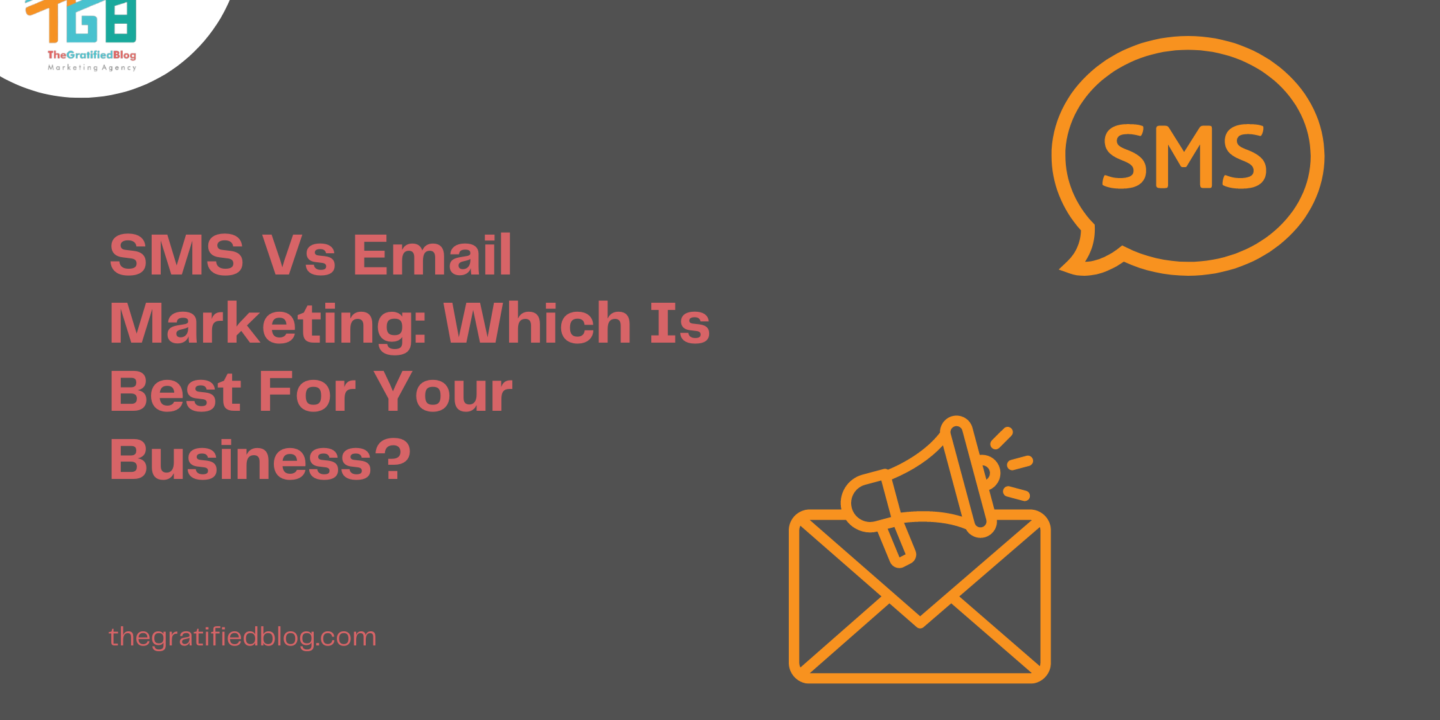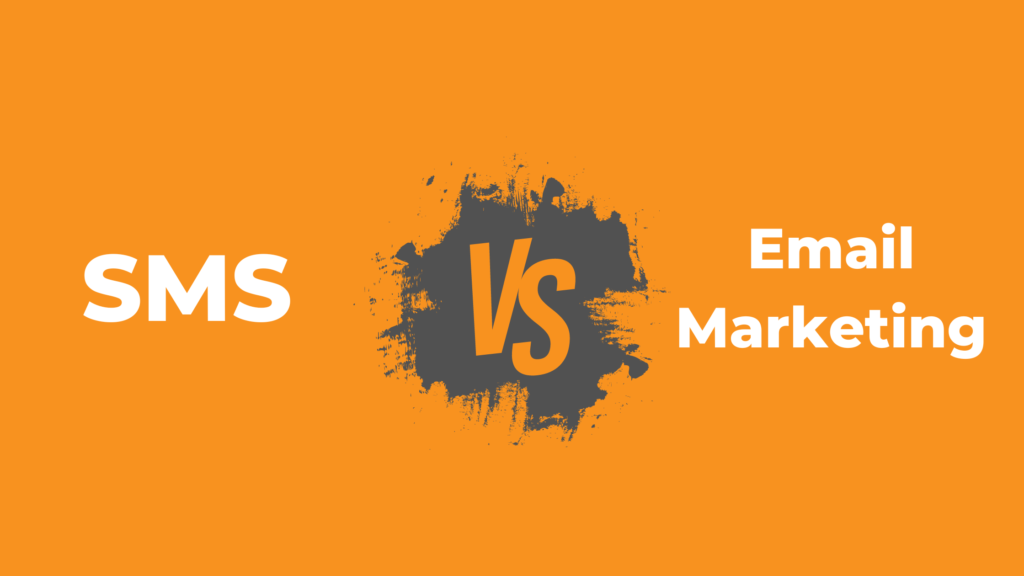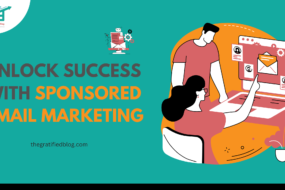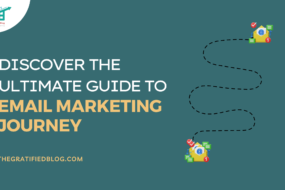
Amidst the dynamic realm of digital marketing, the decision between SMS vs email marketing remains critical for businesses striving to engage their audience successfully.
This comprehensive guide delves into the nuanced differences between these two powerhouse channels: SMS and email marketing. By exploring their unique strengths, limitations, and strategic considerations, we aim to equip businesses with the insight to make well-informed decisions customized to their objectives.
Whether you’re seeking high engagement rates or comprehensive audience reach, understanding the intricacies of SMS vs email marketing is paramount.
So, let’s get started:
Definition Of SMS Marketing
SMS marketing refers to sending promotional messages, offers, or updates to customers or prospects via text messages on their mobile phones. It’s a direct and immediate way for businesses to engage with their audience.
Advantages And Limitations Of SMS Marketing
Advantages Of SMS Marketing
- High Open Rates: SMS messages boast exceptionally high open rates, often exceeding email marketing. This means that most recipients are likely to read your message shortly after receiving it, increasing the likelihood of engagement.
- Immediate Delivery: Unlike other forms of marketing, SMS messages are typically delivered instantly upon sending. This immediateness guarantees that your message promptly reaches your audience. You are making it ideal for time-sensitive promotions or urgent announcements.
- Direct Communication with Customers: SMS marketing enables businesses to create direct lines of communication with their customers. Unlike social media or email, which may get lost in crowded inboxes or feeds, SMS messages are more likely to be noticed and engaged with by recipients.
Limitations Of SMS Marketing
- Character Limitations: One of the primary constraints of SMS marketing is the character limit imposed on text messages. This limitation requires businesses to be concise and to the point in their messaging, making it challenging to convey complex information or detailed offers.
- Opt-in Requirements and Regulations: To comply with regulations and ensure ethical marketing practices, Businesses must secure explicit permission from recipients before sending them promotional materials. SMS messages. This opt-in requirement may limit the size of your SMS subscriber list and requires careful management to avoid legal issues.
- Potential for Being Perceived as Intrusive: While SMS marketing offers direct access to customers, there’s a risk of overstepping boundaries and being perceived as intrusive. Overloading recipients with excessive messages or irrelevant content may result in customer dissatisfaction and opt-out from your SMS list. It’s essential to balance engaging your audience and respecting their privacy.
Definition Of Email Marketing

Email marketing involves Sending promotional messages, newsletters, or updates to a specified roster of email subscribers. It’s a robust digital marketing strategy that allows businesses to communicate directly with their audience via email.
Advantages And Limitations Of Email Marketing
Advantages Of Email Marketing
- Versatility in Content Types: Email marketing offers flexibility in content creation, allowing businesses to include various content formats, including text, images, and videos, within their messages. This versatility enables brands to convey their message effectively and engage recipients differently.
- Ability to Segment Audiences: Email marketing platforms provide robust segmentation capabilities, allowing businesses to divide their email subscribers into specific groups based on demographics, interests, or past behavior. This segmentation enables personalized and targeted messaging, increasing the relevance and effectiveness of email campaigns.
- Cost-effectiveness: Email marketing is highly cost-effective. In contrast to conventional marketing avenues such as print or television advertising, email marketing incurs minimal expenses, enabling businesses to target a broad audience at a significantly reduced cost. This affordability renders it an appealing choice for businesses of varying scales.
Limitations Of Email Marketing
- Lower Open Rates Compared to SMS: Email marketing is a valuable tool, but it typically has lower open rates than SMS marketing. Not all recipients may open or read your email, reducing email campaigns’ immediate impact and engagement.
- Possibility of emails being directed to spam folders: Ensuring emails reach recipients’ inboxes poses a common challenge in email marketing, with emails sometimes getting flagged as spam and ending up in recipients’ spam folders. This can hinder the effectiveness of email campaigns and requires careful attention to factors such as sender reputation and email content to avoid spam filters.
- Requires More Effort to Create Engaging Content: Unlike SMS messages, which are typically brief and to the point, email marketing requires more effort to create engaging content that captures recipients’ attention. From designing visually appealing layouts to crafting compelling copy, creating effective email content demands time and creativity.
Now equipped with the fundamentals of SMS and email marketing, let’s delve deeper into the core subject of the blog: the comparison between SMS Vs email marketing.
SMS Vs Email Marketing: Critical Differences

Audience Reach
SMS marketing typically offers audiences a more direct and immediate reach than email marketing. SMS sends messages directly to recipients’ mobile phones, ensuring they are more likely to be noticed promptly.
Moreover, SMS messaging operates independently of an Internet connection for delivery, making it accessible to a broader audience, including those without regular access to email or Internet services. However, SMS marketing may have audience segmentation and targeting limitations due to regulations surrounding consent and opt-in requirements.
On the other hand, email marketing provides a broader reach regarding audience segmentation and targeting capabilities. Businesses can build email subscriber lists. Dividing them according to different factors like demographics, interests, or previous interactions enables the delivery of more tailored and precise messages tailored to different audience segments.
Additionally, email marketing provides for integrating multimedia content and links to external resources, further enhancing the communication experience. However, email marketing relies on recipients having active email accounts and regular access to their inboxes, which may only sometimes be the case for all audiences.
Engagement Rates
SMS marketing often boasts higher engagement rates compared to email marketing. Due to the immediate nature of SMS messages and the high likelihood of recipients opening and reading them shortly after delivery, SMS campaigns typically yield higher response rates and faster engagement. This is especially beneficial for promotions that are time-sensitive or urgent communications requiring immediate action.
In contrast, email marketing tends to have lower engagement rates than SMS. While email campaigns may reach a larger audience, the open and click-through rates for emails are generally lower than those for SMS messages.
This is partially attributed to the large quantity of emails that individuals receive daily, leading to inbox clutter and a lower likelihood of immediate engagement with marketing emails. However, effective email marketing strategies, such as personalized subject lines and relevant content, can help improve engagement rates over time.
Content Format
SMS marketing is limited in content format due to character constraints imposed by mobile carriers. Messages are usually numbered 160 characters for each SMS, necessitating concise and to-the-point communication.
While SMS messages may include links to external resources, multimedia content such as images or videos is often not feasible within the confines of a text message. Despite these limitations, SMS marketing’s simplicity and brevity can be advantageous for conveying urgent messages or promotional offers effectively.
In contrast, email marketing offers more excellent content format and flexibility in delivery methods. Businesses can create visually appealing emails with multimedia content, including images, videos, and interactive elements. Email campaigns may also include links to landing pages or external websites, providing more extensive information and engagement opportunities.
Additionally, email marketing platforms often provide templates and design tools to improve the visual attractiveness of emails, enabling businesses to create professional-looking communications that reflect their brand identity.
Regulatory Compliance
SMS and email marketing are subject to regulatory requirements to protect consumer privacy and prevent unsolicited communications. In many jurisdictions, businesses must obtain explicit consent from recipients before sending marketing messages via SMS or email.
For SMS marketing, compliance often involves adhering to laws such as the Telephone Consumer Protection Act (TCPA) within the United States, which requires businesses to obtain prior express consent from recipients before sending promotional text messages.
Similarly, email marketing is governed by laws such as the CAN-SPAM Act in the United States, which sets forth requirements for commercial email messages, including allowing recipients to unsubscribe from future communications.
Failure to comply with SMS and email marketing Not adhering to regulatory requirements can result in severe consequences, such as monetary penalties. And legal penalties. As such, businesses engaging in SMS and email marketing must ensure that their campaigns adhere to applicable regulations and obtain proper consent from recipients.
Additionally, companies should maintain accurate records of consent and provide recipients with precise opt-out mechanisms to facilitate compliance with regulatory requirements and respect consumer preferences.
Considerations For Selecting Between SMS And Email Marketing

Type of Business:
Your business type significantly influences whether SMS or email marketing is more suitable. For companies that require immediate communication or deal with time-sensitive promotions, such as retail stores offering flash sales or restaurants announcing daily specials, SMS marketing may be the preferred choice due to its immediacy and high open rates.
Conversely, businesses that focus on building long-term customer relationships or providing in-depth information, such as B2B companies offering software solutions or consulting services, may find email marketing more effective for nurturing leads and delivering comprehensive content.
Target Audience:
Comprehending your target audience and their preferred modes of communication is essential when choosing between SMS and email marketing. Consider age demographics, technological literacy, and lifestyle habits to determine which channel resonates most with your audience. For example, younger demographics might be more receptive to SMS marketing, while older demographics prefer email. Additionally, assess how your audience engages with different communication channels and tailor your marketing strategy accordingly to maximize effectiveness and engagement.
Aligning your marketing goals with SMS and email marketing capabilities is crucial for achieving desired outcomes. If your main goal is to generate instant sales or leads, SMS marketing may be better suited for delivering time-sensitive promotions or event reminders.
On the other hand, if your goal is to nurture leads through a series of educational content or establish thought leadership within your industry, email marketing offers the flexibility to deliver long-form content and personalized messaging tailored to each stage of the customer journey.
Budget and Resources:
Assessing each marketing channel’s financial and workforce resources is essential for making informed decisions. While SMS marketing may offer higher engagement rates and immediate results, it often requires a higher investment per message sent than email marketing. Consider factors such as SMS messaging fees, list management, and compliance expenses when evaluating the budget for SMS marketing campaigns.
Conversely, email marketing is more cost-effective regarding per-message costs but may require additional resources for content creation, design, and segmentation strategies. Evaluate your budget constraints and available resources to determine which marketing channel aligns best with your financial and operational capabilities.
FAQs

Q1. Which is more effective for immediate promotions: SMS or Email marketing?
A. SMS marketing is generally more effective for immediate promotions due to its high open rates and immediate delivery, making it ideal for time-sensitive offers or event reminders.
Q2. Which marketing channel offers more versatility in content format?
A. Email marketing provides greater versatility in content format, allowing businesses to include multimedia elements such as images, videos, and interactive features compared to the character limitations of SMS marketing.
Q3. How do regulatory requirements differ between SMS and Email marketing?
A. Both SMS and Email marketing are subject to regulatory requirements. Still, SMS marketing often requires explicit consent from recipients due to stricter regulations like the TCPA. In contrast, email marketing must comply with laws such as the CAN-SPAM Act, focusing on providing recipients with opt-out options and truthful message labeling.
Conclusion
Now that you’ve gained a more profound comprehension of SMS vs email marketing, it’s evident that each channel possesses its unique strengths and limitations. As you navigate through the complexities of digital marketing, remember to assess your business needs, target audience preferences, marketing objectives, and available resources.
By making informed decisions tailored to your specific situations, you can optimize the efficiency of your marketing efforts and achieve your desired outcomes.
However, if you still have any questions related to the blog, please leave them in the comment section below. We will be happy to answer you.
Thanks for reading 🙂








No Comments